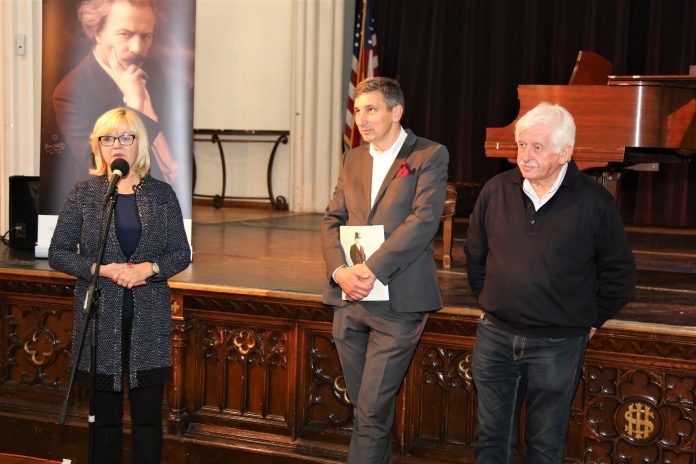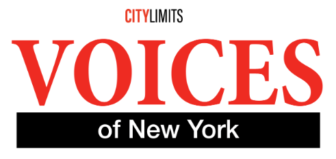
WOJTEK MAŚLANKA/NOWY DZIENNIK
Organizers at the exhibit “Paderewski” which featured lectures by Marek Różycki (center) and Adam Wibrowski.
Read the original story in Polish at Nowy Dziennik
Translated by Aleksandra Slabisz
For the second time in recent years, New York hosted a festival commemorating Ignacy Jan Paderewski, the father of Poland’s independence and an accomplished musician.
This year the festival, entitled “Paderewski’s Days 2019,” included events at Lincoln Center in Manhattan and in Greenpoint, Brooklyn. It also celebrated the 100th anniversary of the Polish-U.S. diplomatic relations, which started after Poland regained independence in 1919.
The celebration kicked off Nov. 16 with a concert “Keys to freedom – Paderewski & Szymanowski” at the Bruno Walter Auditorium at Lincoln Center, where Polish pianist Radosław Sobczak played unique sonatas composed by Paderewski and Karol Szymanowski, another famed Polish composer. The second concert, “Paderewski and Chopin,” took place Nov. 24 at the Polish Slavic Center in Greenpoint.
The festival also included exhibitions, presentations and lectures on the life and accomplishments of Paderewski, a world renowned pianist and composer, as well as a statesman, spokesman for Polish independence, and a spiritual leader for Polish immigrants living in the United States.
On Nov. 20, Greenpoint’s Krakus Senior Club hosted a presentation of the guide book “Following Paderewski in New York,” which depicts local places associated with the pianist, who stayed in New York for longer periods of time while giving concerts at venues like Carnegie Hall and Madison Square Garden. Paderewski was also in New York when he died at the age of 80, in June of 1941, after contracting pneumonia.
Andrzej Renes, a Polish artist and director of RenesArt Foundation, which organized this year’s festival, talked about Paderewski’s life in a lecture entitled “Paderewski – a pianist and diplomat,” where he presented a series of his own sculptures inspired by music.

Voices of New York spotlights ethnic and community reporting from around the city. Click here to read more.
The Krakus Senior Club also hosted a historical exhibit about Paderewski featuring lecturer Adam Wibrowski, who described Paderewski as a virtuoso and master of the piano who toured Paris, Great Britain and most of all the United States, gaining fame and great fortune. Marek Różycki, another lecturer, shared lesser-known facts about Paderewski’s life, calling him the first president of Poland.
“In 1919 he became the president of the Council of Ministers and everyone addressed him [as] Mr. President. There is extensive correspondence from that period where Paderewski is addressed as president,” said Różycki.
Paderewski always spoke of Poland with pride, according to Różycki, and was in contact with American presidents regarding the future of Poland—especially with Herbert Hoover and Woodrow Wilson. Wilson included a push for Polish independence among his “Fourteen Points” outlined at the Paris Peace Conference in 1919. The conference led to the Treaty of Versailles, which Paderewski signed on behalf of Poland.
“Paderewski was the only one, out of the six recognized fathers of the Republic of Poland, who devoted all his wealth to the fight for Poland’s freedom,” Różycki said.









One thought on “NYC Poles Host Festival Honoring Politician Who Fought for Poland’s Independence”
The Paderewski Days Festival is co-organized and supported by: RenesArt Foundation, Consulate General of the Republic of Poland in New York, New York Public Library for the Performing Arts, Polish & Slavic Center, Polish Museum of America. Participation in the events is free.